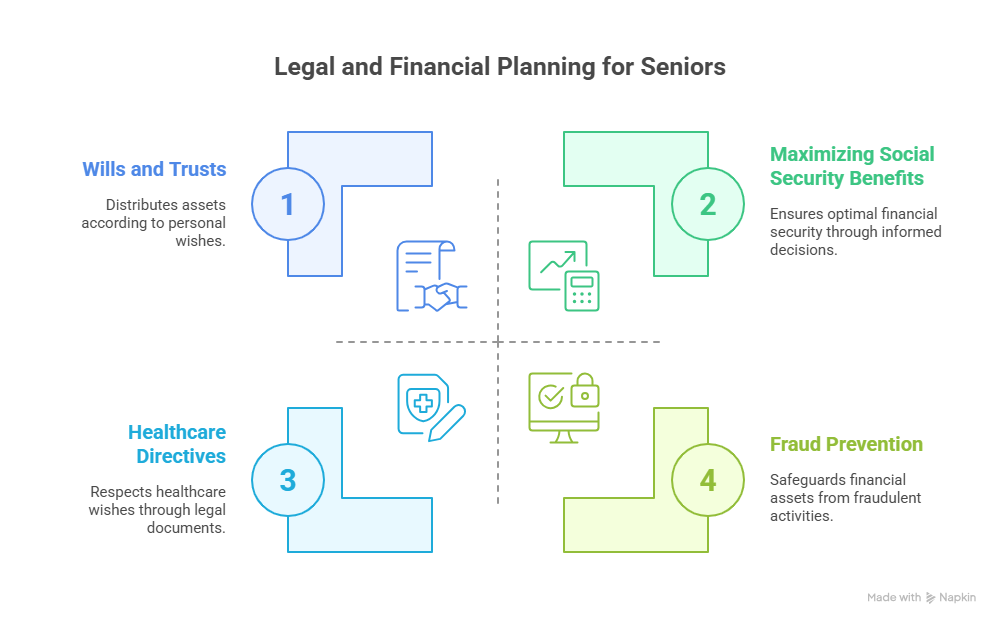Did you know that nearly 1 in 5 seniors experience some form of elder abuse, often due to lack of awareness about their rights? Understanding your rights and resources is crucial https://www.crpc.in/senior-citizen-rights.phpfor navigating the complexities of aging.
As a senior citizen, being informed about elder law advice and available senior legal assistance can significantly impact your quality of life. It’s essential to know where to turn for reliable guidance, and support.
Empowering yourself with knowledge about your rights and the resources available can help you make informed decisions and protect your interests. This section aims to provide a comprehensive overview to help you get started.
Understanding Your Rights as a Senior Citizen
Empowering yourself with knowledge of your rights can make a significant difference in the life of a senior citizen. As you age, it’s vital to understand the legal protections and resources available to you. This knowledge enables you to navigate the complexities of aging and access the support you need.
Age Discrimination Protections
Age discrimination protections are in place to prevent unfair treatment in the workplace and in accessing services. The Age Discrimination in Employment Act (ADEA) prohibits age-based employment discrimination against individuals 40 years or older. This law ensures that seniors are not unfairly denied job opportunities or face harassment due to their age.
Healthcare Rights Under Medicare and Medicaid
Seniors have specific healthcare rights under Medicare and Medicaid. These programs provide essential medical coverage, ensuring access to necessary care. Understanding your rights under these programs can help you navigate the healthcare system and advocate for the care you deserve.
Housing and Accommodation Protections
Housing and accommodation protections are crucial for preventing elder abuse and ensuring safe living conditions. Laws such as the Fair Housing Act prohibit discrimination in housing based on age, among other factors. These protections help seniors access safe and affordable housing.
By understanding these rights, senior citizens can better protect themselves and access the resources they need. For more information on senior citizen legal services, and elderly legal guidance, it’s advisable to consult with legal professionals specializing in senior legal resources.
Essential Legal Advice for Seniors
As seniors navigate the complexities of aging, having the right legal advice can make a significant difference in their quality of life. Legal guidance is crucial in several key areas, including estate planning, advance directives, and financial protection.
Estate Planning Essentials
Estate planning is a vital aspect of legal advice for seniors, ensuring that their assets are managed and distributed according to their wishes. This includes creating wills and trusts, as well as understanding probate considerations.
Wills and Trusts
Wills and trusts are essential tools in estate planning, allowing seniors to specify how their assets should be distributed. A will outlines the distribution of assets upon death, while a trust can provide more control and flexibility during their lifetime.
Probate Considerations
Probate is the legal process of validating a will and executing the instructions contained within. Understanding probate considerations can help seniors minimize delays and costs associated with the distribution of their estate.
Advance Directives and Powers of Attorney
Advance directives and powers of attorney are critical legal documents that allow seniors to appoint representatives to make decisions on their behalf. This ensures that their wishes are respected in matters of healthcare and financial management.
Financial Protection Strategies
Financial protection is a key concern for seniors, who are often targeted, by fraudsters. Strategies for financial protection include fraud prevention measures and maximizing social security benefits.
Fraud Prevention
Fraud prevention is crucial for seniors, who can be vulnerable to scams and financial exploitation. Being aware of common fraud schemes and taking steps to protect personal and financial information is essential.
Social Security Benefits
Maximizing social security benefits requires understanding the options available and making informed decisions about when to claim benefits. This can significantly impact a senior’s financial security.
| Legal Area | Key Considerations | Benefits |
|---|---|---|
| Estate Planning | Wills, Trusts, Probate | Ensures assets are distributed according to wishes |
| Advance Directives | Powers of Attorney, Healthcare Directives | Respects senior’s wishes in healthcare and financial decisions |
| Financial Protection | Fraud Prevention, Social Security Benefits | Protects financial security and maximizes benefits |

Conclusion: Finding Senior Legal Resources
Senior citizens face unique legal challenges, from estate planning to healthcare rights and financial protection. Understanding their legal rights and resources is crucial for navigating these challenges.
Seeking professional legal advice is essential for seniors to take control of their legal affairs. Resources such as the National Council on Aging and the American Bar Association’s Commission on Law and Aging provide valuable information on elder law advice and senior legal assistance.
Seniors can also benefit from legal aid organizations that offer free or low-cost legal services. By knowing where to turn for help, seniors can protect their rights and improve their quality of life. For personalized legal advice for seniors, it’s recommended to consult with an attorney specializing in elder law.
FAQ
What are my rights as a senior citizen regarding age discrimination?
As a senior citizen, you are protected against age discrimination under laws such as the Age Discrimination in Employment Act (ADEA) and the Age Discrimination Act. These laws prohibit discrimination in the workplace, in accessing services, and in other areas, ensuring you receive fair treatment.
How do I understand my healthcare rights under Medicare and Medicaid?
Understanding your healthcare rights under Medicare and Medicaid involves knowing what services are covered, how to access care, and what your rights are as a patient. You can contact your local Medicare or Medicaid office, or consult with a healthcare advocate to get more information.
What are my housing and accommodation protections as a senior citizen?
As a senior citizen, you are protected, against housing discrimination under the Fair Housing Act. Additionally, there are laws and programs in place to protect seniors from elder abuse and ensure safe living conditions. You can contact a local housing authority or a senior advocacy organization for more information.
What are the essentials of estate planning for seniors?
Estate planning essentials for seniors include creating a will, establishing trusts, and considering probate. It’s also important to plan for advance directives and powers of attorney. Consulting with an estate planning attorney can help you navigate these complex issues.
How can I protect myself from financial exploitation as a senior citizen?
To protect yourself from financial exploitation, be cautious of unsolicited offers or requests for personal financial information. Consider strategies such as setting up a trust, using a financial advisor, and monitoring your accounts regularly. You can also contact a local adult protective services agency for assistance.
Where can I find senior legal resources and assistance?
You can find senior legal resources and assistance through organizations such as the National Council on Aging, the American Bar Association’s Commission on Law and Aging, and local senior centers. These organizations can provide guidance on a range of legal issues affecting seniors, from estate planning to healthcare rights.
What is the role of advance directives and powers of attorney in senior legal planning?
Advance directives and powers of attorney are critical components of senior legal planning. They allow you to designate someone to make decisions on your behalf if you become incapacitated. Consulting with an attorney can help you understand the different types of advance directives and powers of attorney and how to use them effectively.

